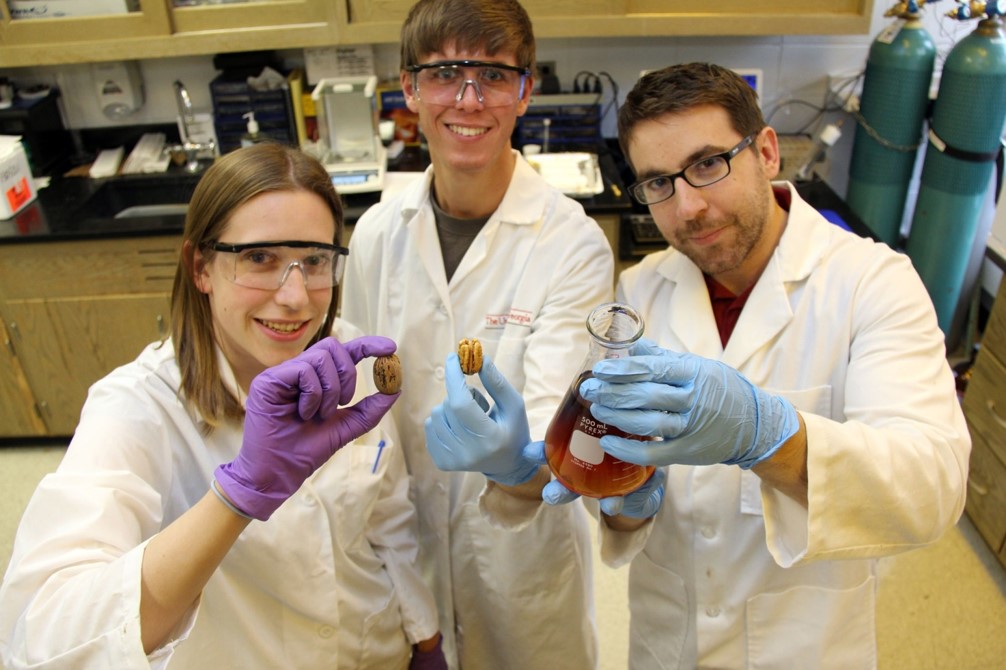-
Pegg, Ronald
Characterization the Phenolics of Georgia Pecans and Investigating the Antioxidant Impact of this Health Food
Summary
We are investigating the composition and activity of antioxidant phenolics isolated from Georgia pecans using chromatographic strategies and cell culture models.
Situation
Emerging research is showing that bioactives in tree nuts (like pecans) may be responsible for the amelioration of chronic diseases. The likely constituents in pecans, responsible for the observed reduction in the risk of chronic diseases, are its phenolics. A key Loma Linda University study {Hudthagosol et al. 2011. J. Nutr., 141:56-62} reported that a meal with pecans acutely increased plasma postprandial antioxidant capacity and decreased LDL (bad cholesterol) oxidation in humans. This seminal clinical trial demonstrated for the very first time that bioactive constituents in pecans are indeed absorbable and contribute to postprandial antioxidant defenses in humans. Yet, much is still unknown about the composition of these bioactives.
Response
A better understanding of the phenolics in Georgia pecans before and after digestion in the gastrointestinal tract, and their entry into the bloodstream (absorption) is warranted. Unraveling the chemical nature of antioxidant-rich commodities is progressing in our laboratories via different avenues, but a logical stream of testing evolves from chemical proof of antioxidant content through biological testing in cell-based assays. We have shown transport of Georgia pecan phenolics across a Caco-2 monolayer. To our knowledge, this work is the first-ever reporting of tree nut phenolics (i.e., both raw and roasted) being transported across a Caco-2 cell line, which models the function of intestinal cells in the gastrointestinal tract in agreement with the studies from Loma Linda cited above.
Impact
Our research has revealed unequivocally that pecans are a tree nut species very potent in terms of antioxidant activity, as assessed by in vitro antioxidant assays. Moreover, we are also demonstrating that these constituents in pecans work at the cellular level and do impart antioxidant protection, based on the cellular antioxidant activity (CAA) assay also performed at UGA. For the health & wellness-conscious consumer, our reporting on the impact of the healthful bioactives in Georgia pecans (i.e., their phenolic constituents) should aid in U.S. retail sales.
State Issue
Health & Wellness
Details
- Year: 2020
- Geographic Scope: National
- County: Clarke
- Location: College Station, Athens
-
Program Areas:
- Agriculture & Natural Resources
Author
Collaborator(s)
Non-CAES Collaborator(s)
- Greenspan, Phillip
Research Impact

